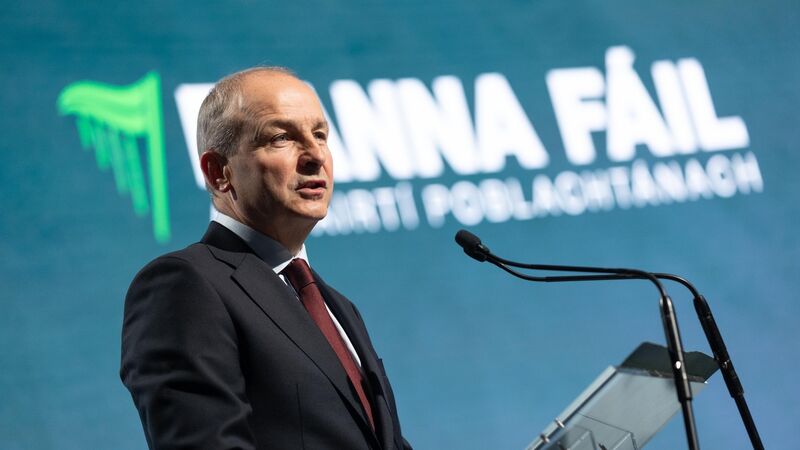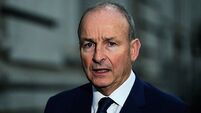Coalition 'will go the full term': Micheál Martin rules out early election

Toiseach Micheál Martin at the Fianna Fáil Ard fheis, at the RDS in Dublin today. Picture: Kenneth O Halloran
Taoiseach Micheál Martin has insisted the historic coalition between Fianna Fáil, Fine Gael and the Green Party “will go the full term,” ruling out an early General Election.
Speaking in an interview with the at the Fianna Fáil Ard Fheis in Dublin, Mr Martin said the glue which is holding the coalition together is the Programme for Government which needs a full term to be implemented.














